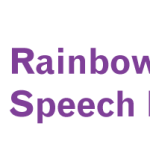
Not sure what the word ‘dysphagia’ means? You’re not alone. Dysphagia is the medical term for difficulty or a disorder of swallowing.
Most people take their ability to swallow food and drink for granted. You might absentmindedly sip a latte during a team meeting at work. Or maybe each week you enjoy a well-done steak at the local pub with your friends, without giving your ability to chew and swallow a second thought. People with dysphagia can have difficulty consuming the foods and drinks they enjoy due to difficulty swallowing.
Over 20 per cent of people over the age of 50 have dysphagia. However, people can experience dysphagia at all stages of life – including infants, children, adults and older adults. Dysphagia can occur with a range of health conditions, such as premature birth, genetic conditions such as Cerebral Palsy, following an acute health condition such as a stroke, or in neurodegenerative conditions such as Parkinson’s Disease, Motor Neurone Disease or Dementia.
Some signs of dysphagia can include:
- Coughing or choking when eating or drinking.
- Wet or gurgly voice after swallowing food or drink.
- Recurrent chest infections.
- Food residue left inside the mouth after swallowing.
- Needing to swallow multiple times to clear food or drink from your mouth.
- Taking a long time to eat, or fatigue after eating.
- Avoiding certain foods (such as chewy or crunchy textures).
If untreated, dysphagia can result in penetration and/or aspiration of food or drink into the lungs. This is when food or drink travels down the airway (trachea), instead of down the oesophagus to the stomach. Penetration and aspiration can cause aspiration pneumonia, which can be a serious lung infection which is a health risk.
Speech pathologists are specialists in identifying dysphagia and helping clients manage their eating and drinking. We can help by:
- Conducting a mealtime assessment – the speech pathologist observes the client eating and drinking and monitors for signs of penetration and aspiration.
- Prescribing swallowing exercises to help improve muscle strength and motion for swallowing
- Prescribing compensatory strategies to aid safe swallowing, such as head, body and neck positioning while eating and drinking
- Recommending modifications to the texture of food and fluids, based on the International Dysphagia Diet Standardisation Initiative (IDDSI)
- Working with other health professionals, such as dieticians, to help clients manage their nutritional intake and hydration.
- Working holistically with the client and family to develop a dysphagia management plan incorporating swallowing exercises, compensatory strategies and diet modifications
Find out more about dysphagia:
- Dysphagia information from Speech Pathology Australia
- International Dysphagia Diet Standardisation Initiative (IDDSI)
- Beyond the Blender – dysphagia made easy cookbook
Written by Katie Speech Language Pathologist March 2024


